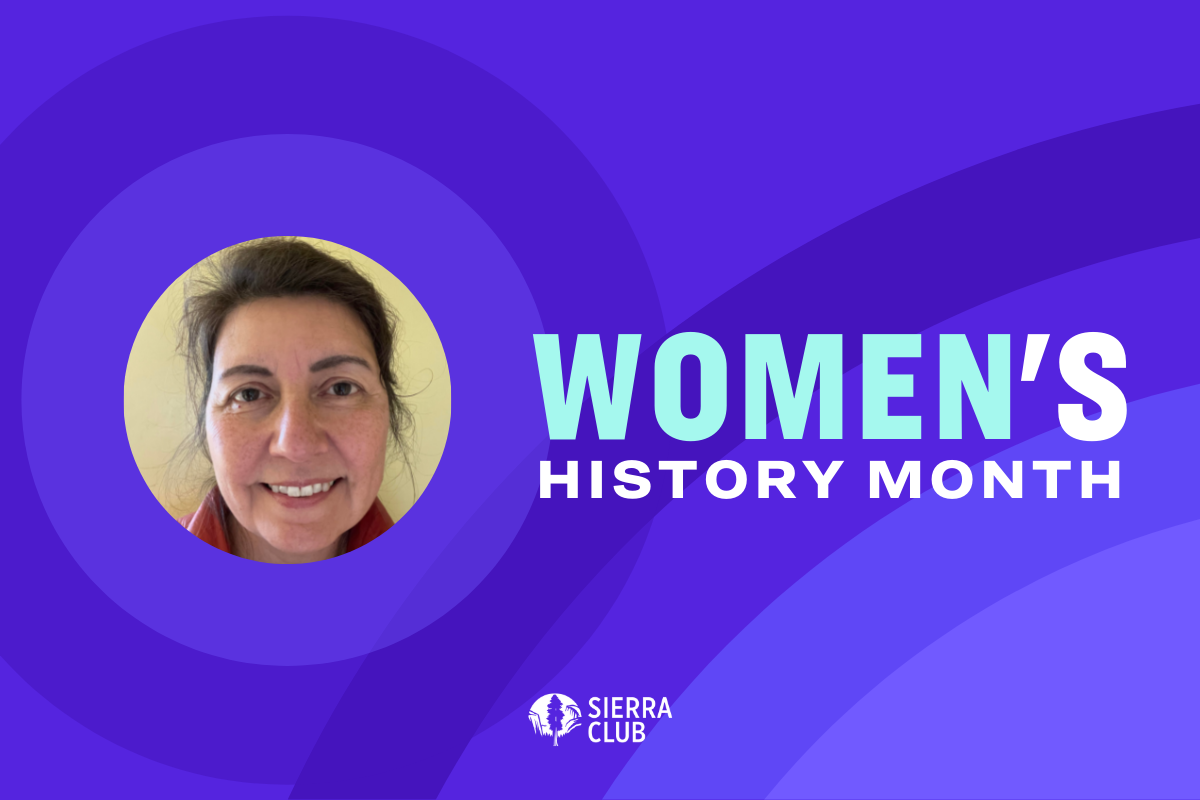Several issues brought Virginia Tarango to the Sierra Club as a volunteer. An avid backpacker and camper, Tarango was seeing the landscapes she loved be transformed by climate change. “You can definitely see the changes, even in a short time,” said Tarango. “I thought, ‘This should be for everyone, everyone should get to see it as I see it.' It makes you think about what’s available for future generations.”
Add to that a fear of environmental rollbacks after the 2016 election, and Tarango came to the Sierra Club ready to make a difference. When she first started attending meetings, the Oregon Chapter was pushing back against far-right groups’ attempts to scapegoat immigrants for Oregon’s environmental problems. Virginia helped organize the environmental movement’s response, pointing out that in reality, Oregon’s environmental problems were caused by corporate polluters. Despite experiencing the brunt of environmental pollution, Oregon’s immigrants are also leaders in its environmental justice movement.
Tarango currently serves in several volunteer roles with the Sierra Club Oregon chapter. She’s a member of the clean energy task force, chair of the chapter political committee and is also on the executive committee.
While she loves all the volunteering, Tarango is partial to the clean energy task force.
“The focus of that group for a long time was addressing coal use in Oregon. We were really successful there,” said Tarango. “Now the focus is on other efforts to build the new regenerative and clean energy economy. The task force is one of my favorite spaces because we have a great crew of folks who are committed to equity and inclusion. It’s really an integral part of how we think about the work we’re doing.”
Tarango is Hispanic and grew up in rural Idaho. “In my life I’ve seen the ways different people are treated because of where they’re from,” she said. “I have a real sense of how racism plays into all of this – where you live, what you have access to, and the kinds of solutions available to you.”
Tarango leads in the spirit of belated movement elder Grace Lee Boggs, who said: “We are the leaders we’ve been looking for.'' She supports other people to become leaders in environmental work, including people who might not automatically be appreciated as leaders. She believes that the Sierra Club and the climate justice movement are stronger when we have a wide diversity not only of identities, but also of communication styles, professional backgrounds, and experiences.
Being an ally to frontline communities is critical, said Tarango. “We have to create a space so they are heard, we know they suffer the most from pollution and climate change.”
There are several volunteer moments that make Tarango proud, including the retirement of the last coal plant in Oregon. “I came in at the tail end of that, but I think it really showed how we can effect positive change,” said Tarango. “I saw all these amazing activists get together and work in alignment to do something really important.”
Tarango is also proud of the creation of the Portland Clean Energy Fund, an initiative begun in 2018 where “nonprofit organizations, alone or in partnership with for-profit companies, schools and/or other government agencies, can apply for grants… to weatherize homes, install solar and other renewable energy projects, provide job and contractor training, expand local food production, and build green infrastructure in Portland.”
She worked with the frontline-led coalition to help get the ballot initiative passed that created the fund, and she continues to collaborate with the fund today.
There’s also some Beyond Coal work left to do, too: Oregon still gets some power from out-of-state coal plants and the task force is trying to get utility PacifiCorps to retire those plants.
Tarango hopes to continue to see the Oregon chapter grow stronger and be a welcoming place. “I want us to be a chapter where we have a lot of different backgrounds, coming together towards a shared vision and purpose.”
